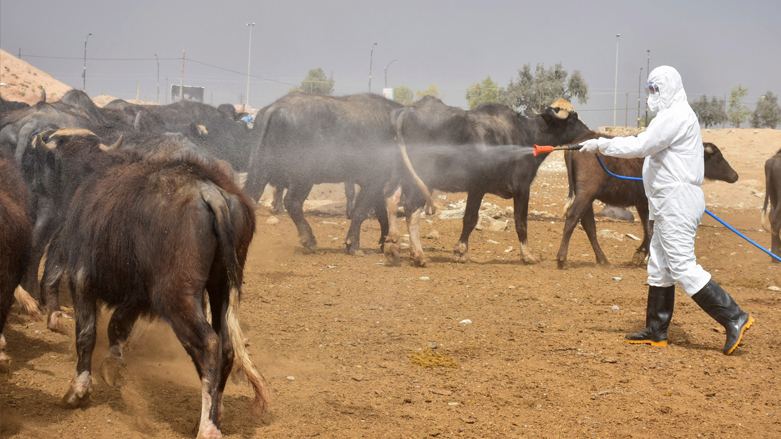Erbil records first case of Crimean-Congo hemorrhagic fever

ERBIL (Kurdistan 24) – Health officials in the Kurdistan Region recorded the first case of Crimean-Congo hemorrhagic fever in the capital Erbil amid a growing number of infections from contagious animal-borne viruses throughout Iraq.
The Erbil General Health Directorate announced Tuesday that a 17-year-old butcher tested positive for the fever.
Officials previously said that they had detected a suspected case of the virus. However, it turned out the individual had not been infected, according to a statement from the Directorate. Therefore, Tuesday's case is the Kurdish capital's first recorded.
The health ministry had already announced a number of measures taken to reduce the risk of the virus, which can infect animals and humans alike through tick bites, spreading widely.
So far, Iraq has recorded nearly 60 cases and 12 deaths from viral hemorrhagic fevers (VHFs), including the Crimean-Congo fever.
In previous years, the country would record about 20 cases each year. However, this year it has already recorded thrice that number, according to the Iraqi Health of Ministry Spokesperson Saif Al-Badir.
There isn't a vaccine or any known cure for VHFs.
The Crimean-Congo VHF is transmitted from animals to humans and can cause various symptoms, including high fever and bleeding. The virus's fatality rate is as high as 40 percent.
Kurdish health authorities have stated that animals mustn't be slaughtered outside of approved facilities, where livestock are regularly sprayed with disinfectants and other hygiene measures are closely observed to reduce the risks of VHFs spreading widely.
